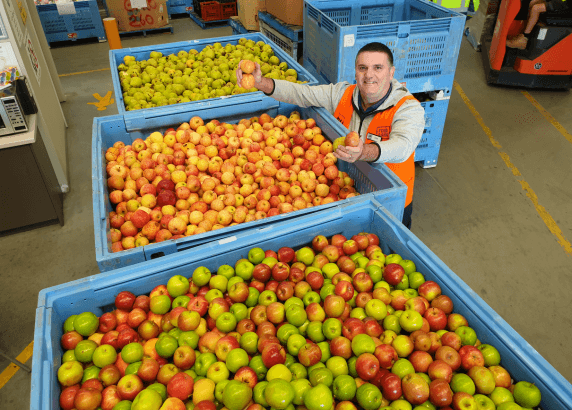Waste not, want not
How you can help to reduce your own food waste
According to Recycle Right, approximately 312kg per person of food is wasted every year in Australia which equates to one in five bags of groceries and at a cost of more than $2000 a year.
Producing food involves water usage, electricity, transport and much more. When we throw away food, we don’t only discard it, but we also waste all the resources used to make that food.
Here are some simple tips to help reduce food waste, be more environmentally friendly and save money:
Adopt a healthier and more sustainable diet by choosing foods from the five core food groups and cut back on processed and packaged foods.
Budget and buy only what is needed. Plan your meals and write a shopping list. This great habit saves you time, money and makes it easy to organise dinner. Head to the Superhero Foods HQ for a handy meal planner.

Where possible, choose the ‘ugly’ fruit and vegetables, pick from the ‘odd bunch’ area at your local shop. The odd-shaped fruit and veg are just as healthy and tasty, and once chopped or grated, you can’t tell the difference. You can also freeze your blackened bananas and other fruits for smoothies or sauces – think home-made apple sauce.
Supporting local food producers is beneficial too. By buying local produce, you support family farmers and small businesses in your community and you also help fight pollution by reducing food miles.
Store food wisely – rotate the food in your fridge, freezer and pantry so the older items are at the front and are used first. Have a look at the ‘use-by date’ and ‘best before date’ as the latter is still safe to eat after the suggested date. Cook or freeze those that are close to the use-by date.
Keeping health front of mind, eat smart. Freeze left-overs or have them for lunch the day after. Remember that you can always ask for a doggy bag to take left overs home after eating out to eat the next day.
Don’t forget that you can put your food waste to use, instead of throwing away your food scraps, compost them or give them to friends who have chickens, ducks or a worm farm.
Last but certainly not least, donate food that would otherwise be wasted. For example, ask family members, friends and neighbours if they would like to share your food or donate to food relief organisations like our very own.
 Contact us
Contact us Log in
Log in